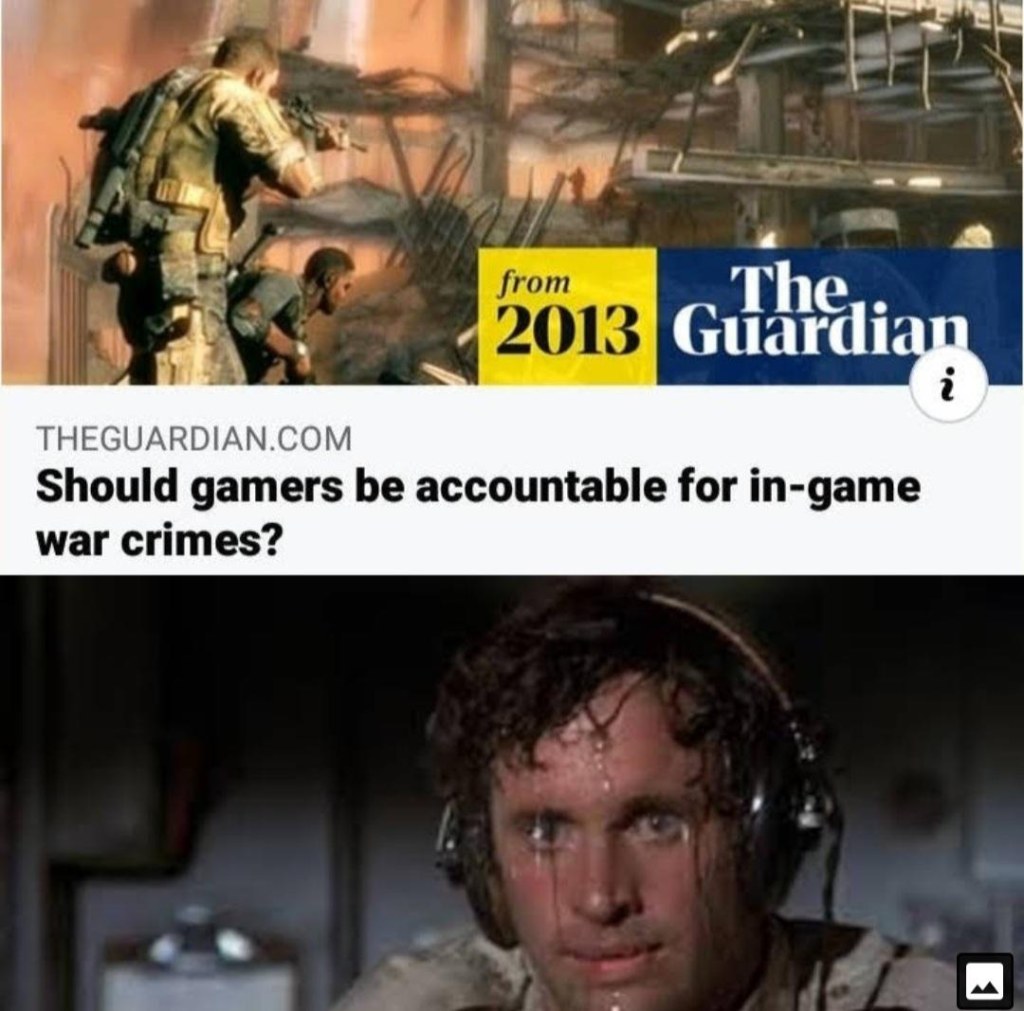Unmasking Virtual Warfare: Should Gamers Be Held Accountable For Ingame War Crimes?
Should Gamers be Accountable for Ingame War Crimes?
Introduction
Greetings, gamers! As a fellow game enthusiast, I believe it’s important for us to delve into the ethical implications of our virtual actions. In recent years, the gaming community has been confronted with a controversial question: should gamers be held accountable for committing war crimes within the virtual realms of their favorite games? This article aims to explore this question, analyze its various aspects, and provide you with a comprehensive understanding of the arguments surrounding this topic.
Before we dive in, let’s first define what we mean by war crimes in the context of gaming. Ingame war crimes refer to acts committed by players within video games that mimic real-world war scenarios. These acts may include intentional targeting of civilians, torture of prisoners, and destruction of cultural heritage sites, among others.
1 Picture Gallery: Unmasking Virtual Warfare: Should Gamers Be Held Accountable For Ingame War Crimes?

Now, let’s take a closer look at what, who, when, where, why, and how gamers should be accountable for ingame war crimes.
What are Ingame War Crimes?
When we talk about ingame war crimes, we are referring to actions taken by gamers within virtual worlds that mimic real-world war scenarios. These actions can range from intentional targeting of innocent NPCs (non-player characters) to the destruction of virtual cities and landmarks. While these acts may not have real-world consequences, they raise important ethical questions about the impact of our virtual actions on our moral compass.
Explanation:

Image Source: redd.it
It is essential to understand the nature of ingame war crimes and how they mirror real-world conflicts. Some argue that these actions are merely part of the gameplay experience and should not be taken seriously. However, others believe that the immersive nature of modern video games blurs the lines between reality and fantasy, making players more prone to engage in morally questionable behavior.
Who Should be Held Accountable?
When it comes to accountability, the question arises: who should be held responsible for ingame war crimes? Is it solely the gamers who commit these acts, or should game developers and publishers also bear some responsibility? The answer is complex and multifaceted.
Explanation:
From a legal standpoint, holding individual players accountable for their actions within a virtual environment is challenging. However, some argue that game developers should implement stricter regulations and guidelines to prevent players from engaging in morally reprehensible activities. Additionally, communities within video games can also play a role in promoting ethical behavior and discouraging acts of violence and destruction.
When Should Gamers be Held Accountable?
Timing plays a crucial role in determining when gamers should be held accountable for ingame war crimes. Should accountability be enforced during gameplay, or should it extend beyond the virtual world into real-life consequences?
Explanation:
Currently, the consequences for committing ingame war crimes are limited to within the game itself. Players may face in-game penalties, such as being temporarily banned or losing progress. However, some argue that serious offenses should have real-life consequences, such as being banned from online platforms or facing legal repercussions.
Where Do Ingame War Crimes Occur?
Ingame war crimes can occur within a variety of gaming environments, ranging from massive multiplayer online games to single-player campaigns. The virtual landscapes within these games provide players with opportunities to engage in warfare, making it essential to consider the impact of their actions.
Explanation:
Virtual environments often reflect real-world conflicts, and players are presented with choices that can shape the outcome of these digital wars. It is within these landscapes that gamers must navigate the ethical implications of their actions and consider the consequences they may have on the virtual world and its inhabitants.
Why Should Gamers be Held Accountable?
The question of why gamers should be held accountable for ingame war crimes stems from the potential negative impact these actions can have on individuals and society as a whole. By exploring this aspect, we can better understand the need for accountability within the gaming community.
Explanation:
Some argue that virtual actions have no real-world consequences, and therefore, accountability is unnecessary. However, research suggests that prolonged exposure to violent or morally questionable actions within video games can desensitize individuals to violence and lead to the normalization of unethical behavior. Holding gamers accountable can help create a more responsible and empathetic gaming community.
How Can Gamers be Held Accountable?
Addressing the question of how gamers can be held accountable for ingame war crimes is a complex issue. Implementing effective measures requires collaboration between game developers, communities, and individual players.
Explanation:
One proposed solution is the development of in-game reporting systems that allow players to flag and report instances of ingame war crimes. Furthermore, fostering a culture of ethical gameplay within gaming communities can play a crucial role in discouraging toxic behavior and encouraging players to act responsibly.
Advantages and Disadvantages of Holding Gamers Accountable
As with any complex issue, there are both advantages and disadvantages to holding gamers accountable for ingame war crimes. Let’s take a closer look at these pros and cons:
Advantages:
1. Promotes ethical behavior within the gaming community.
2. Raises awareness about the potential impact of virtual actions on real-life attitudes and behavior.
3. Encourages game developers to create more responsible and socially conscious games.
Disadvantages:
1. Difficulties in determining the severity and consequences of ingame war crimes.
2. Potential infringement on players’ freedom of expression and creativity.
3. The challenge of enforcing accountability in a virtual environment.
FAQs
Q: Can ingame war crimes be considered a form of virtual reality violence?
A: While ingame war crimes can be seen as a form of virtual violence, they are distinct from virtual reality (VR) experiences, which seek to create an immersive and realistic environment.
Q: Do ingame war crimes contribute to real-life violence?
A: The relationship between ingame war crimes and real-life violence is complex. While research suggests a connection between exposure to virtual violence and desensitization, it is essential to consider multiple factors that contribute to real-life violence.
Q: Are there any legal consequences for ingame war crimes?
A: Currently, there are no legal consequences for ingame war crimes. However, some countries have started to explore the legal implications of virtual crimes and their potential real-world impact.
Q: Can ingame war crimes be justified as part of the gaming experience?
A: The justification of ingame war crimes as part of the gaming experience is a matter of personal opinion. While some argue that they are essential for the immersion and storytelling aspects of games, others believe that ethical considerations should prevail.
Q: How can I contribute to a more responsible gaming community?
A: You can contribute to a responsible gaming community by promoting respectful and ethical behavior, reporting instances of toxic or harmful actions, and engaging in discussions surrounding the impact of virtual actions on real-life attitudes and behavior.
Conclusion
In conclusion, the question of whether gamers should be held accountable for ingame war crimes raises important ethical considerations within the gaming community. While the issue is complex and multifaceted, it is essential to recognize the potential impact of our virtual actions on our moral compass and society as a whole. By fostering a culture of ethical gameplay and implementing effective measures, we can create a more responsible and empathetic gaming community.
Final Remarks
In our digital age, video games have become an increasingly integral part of our lives. As gamers, it is our responsibility to reflect on the ethical implications of our virtual actions and strive for a more conscientious gaming community. While the debate surrounding the accountability of gamers for ingame war crimes continues, let us remember to prioritize empathy, respect, and ethical behavior both within and beyond the virtual worlds we inhabit.
This post topic: Game


